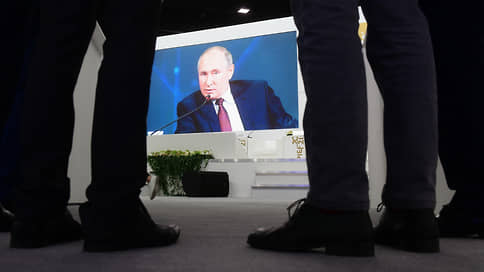The authorities announced a new national project on digital transformation
[ad_1]

Vladimir Putin suggested that the government develop a national project to launch a data economy in the Russian Federation within a year. As conceived by the authorities, it will not only combine existing tools for the development of the digital economy, artificial intelligence technologies and other high-tech projects, but will also allow building a single mechanism for creating and implementing developments. The national project should cover all stages of the life of data as a key to a new stage of digital transformation. Experts hope that the format of the national project will also solve the current problems with openness and access to state data, as well as provide an opportunity to work with impersonal information arrays.
Prepare a new national project on the formation of a data economy for the period up to 2030 Vladimir Putin offered July 13 during the Future Technologies Forum. The President explained that it was not only about combining existing tools to support the development of the digital economy, artificial intelligence and high-tech projects, but also about building a “holistic mechanism” for the creation and implementation of advanced developments.
The national project should cover all stages of data life: collection, transmission and development of communication systems, storage, protection, standards and protocols for working with data, processing and analysis.
A part of the project will be “road maps” on quantum communications and computing (the last forum was mainly devoted to them). Later, Deputy Prime Minister Dmitry Chernyshenko explained that the project is “practically insurance that scientific developments will continue in the absence of the large guaranteed demand formulated now” for them. It should be noted that the increased interest of the authorities in “quanta” can be explained by the impetus that they are able to give to digital development. So far, the main customer of research is the state, according to Dmitry Chernyshenko, 28 billion rubles have been allocated in the budget for quantum computing for three years, and 13 billion rubles for quantum communications.
However, the main issue of further digital development is still the problem of data. According to Pavel Rudnik, Deputy Head of the HSE Institute for Statistical Research and Economics of Knowledge, promising digital technologies, including artificial intelligence and the Internet of things, are based on data, the widespread introduction of innovations involves the constant production and circulation of large amounts of information, and there are tasks in this area, requiring state intervention: it is necessary to form mechanisms for interaction between producers and consumers of data, including regulating the processes of buying and selling, exchanging data arrays and enriching them by market participants.
The country has already created an extensive ICT infrastructure, and the removal of barriers and restrictions in the field of data will provide conditions for the realization of the accumulated potential, the expert believes.
The new national project, in his opinion, will attract resources and administrative attention to the problems of developing the digital economy.
“They are mainly related to regulatory barriers in terms of access to state data, with the ability to work with depersonalized and anonymized data arrays, with secrets,” the press service of the Big Data Association noted. They expect that the national project will provide a comprehensive look at these issues and initiate the implementation of relevant reforms.
In turn, the director of ANO Information Culture, Ivan Begtin, in his Telegram channel noted that the president did not say anything about the openness of data. “A clear focus on the data economy without openness is a “play” towards large corporations that negotiate with the state on the use of citizens’ personal data, and, conversely, an increasing collection of information about citizens by the state through corporations,” he believes.
[ad_2]
Source link






